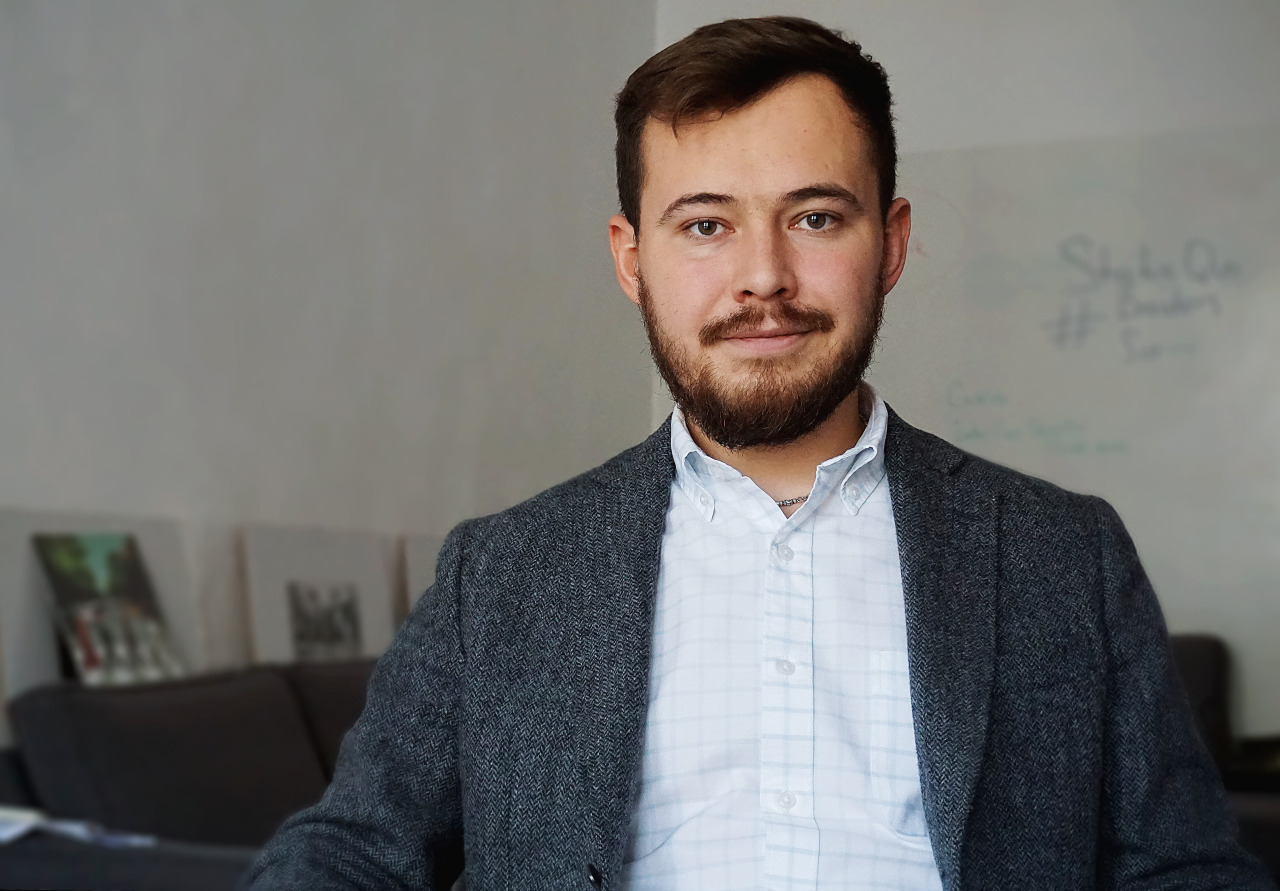About the interview
Who better to help understand a country than someone who knows it from the inside? In order to gain a deeper understanding of Russian issues, we invite you to an interview with the director of the House of Free Russia in Kyiv. We talked about the consequences of changes to the Russian constitution, what Surkov’s resignation means, what should be paid attention to first of all when reintegrating Donbas, as well as European expectations from Ukraine. Mr. Hryhoriy is a guest on Ukrainian television and has publications in various publications, including the leading American analytical center Atlantic Council.
About the activities of the “House of Free Russia”
The House of Free Russia is a division of the Free Russia Foundation, which originally appeared in the States.
In the US and EU, the Foundation organizes many events, presentations and reports, but everything is mainly aimed at the establishment, namely, to ensure that our products end up in warm hands, and are not created in vain.
During the launch of the project in Ukraine, we were faced with a slightly different task – to focus not on opinion leaders, but on the broad masses. First of all, you need to understand that this is a conflict environment with which you need to communicate a little differently.
In the project we were able to combine two things: high-quality political science, economic and international content for the masses, and also the fact that people come to the site with the inscription “House of Free Russia”, realizing that Russia is not only the Kremlin. In 2018, we held 50 events, which were attended by about 1,400 unique listeners.
Agenda
— It is known that Putin initiated constitutional reform. What do you think this means?
— It’s not that this is a reform, rather, it looks like a revolution, but in small print. All this is being done to ensure that Putin remains in power for life. At the same time, we see that this process is accompanied by a certain redistribution of positions. This is not only about the government: since the role of the State Duma is now increasing, many vacancies are opening up. I mean the opportunity to climb up the trough, including for officials from the regions. Based on this situation, the regional ones are interested in being more proactive, because in the near future loyal people will have a lot of opportunities.
— If we talk about this reform in the international context, what impact can it have?
— Now the Kremlin wants to implement the supremacy of Russian laws over international law. However, for this purpose, they will not change a separate provision of the Constitution of the Russian Federation: in a specific case, this can only be implemented with the help of a constitutional assembly and a general referendum – no one will do either of these.
Instead, for any international treaty they want to organize a procedure that already exists today for judicial decisions of the ECHR. According to this procedure, the Constitutional Court of Russia can recognize decisions of the ECHR as “violating the rights of Russian citizens” and, accordingly, not implement them.
The Kremlin wants to implement the supremacy of Russian laws over international law.
— In your opinion, wouldn’t it be easier for Putin to simply withdraw from international treaties?
— People who say that Putin will now withdraw from all international organizations and relevant treaties do not understand what they are talking about. The fact is that the current Kremlin guys quite effectively use many international treaties in which Russia is included, and they really do not like to leave international organizations. This is a story about how to create a mechanism that will allow you to use only international acts without implementing unfavorable decisions.
— You talked about opportunities for loyal people, but how then does this relate to Medvedev, who found himself “overboard” of the Russian government?
— Indeed, most analysts call Medvedev a certain example of loyalty, moreover, the only person who was actually able to prove it, and to the maximum extent. Note that no one else had the opportunity to prove loyalty of this level.
The fact that he is now resigning along with the government does not mean that this is forever. On the other hand, the Medvedev government was associated by a large part of the population with the negative effect of the pension reform and many other unpopular laws that he had to adopt. I think that this is why not only he, but also the entire social bloc of the government left. Most likely, this is a way to whiten up before the next State Duma vote.
The new government is, of course, not very pleasant people, but these are people who, at their bureaucratic level, can manage the economy quite effectively.
— Isn’t it too early for Putin to decide to change the constitution, since it seems he has plenty of time to carry out the necessary changes without haste and unnecessary publicity?
— I think they decided to quickly carry out the transformation while they still control the situation.” The very structure of power within which they have existed for the last 20 years is beginning to act up a little. In turn, changing the government, and at the same time the constitution, is a way out for them to stabilize the system. After all, those who are inside it are interested in staying there as long as possible.
— Was there a similar case in the post-Soviet space?
— Most likely, the Kremlin looked at what had previously happened in Kazakhstan and thought that this was not a stupid idea. At one time, Nazarbayev, when he was still in power, launched a constitutional reform, and the driver of fear played a significant role in this. The fact is that earlier he was frightened by the development of events in Uzbekistan, where, after the change of president, a small, but still revolution took place, which turned out to be detrimental to the established local elites. Moreover, the new president came from the environment of the previous one. Accordingly, such a development of events was unprofitable for Nazarbayev, whose children and friends are all in government. In general, this resembles a kind of house of cards in the post-Soviet space.
— What do you think the departure of Putin’s adviser Surkov and the arrival of Kozak mean?
— Now many are writing that Kozak will be involved in the Ukrainian direction, and, they say, Putin will want to follow the path of peace in Donbass. At the same time, it is easy to think that when changing the structure of power in the Kremlin, they will take into account the external factor. When they make a tsar out of Putin through constitutional reform, it will be much more difficult for Putin himself and his Western lobbyists to talk about how great the Russian authorities are: the ministers are elected themselves, and the people themselves decided to change the constitution. Coming from this, it is quite logical that at the same time they need to show something else in order to profitably sell this whole story to the West within the framework of all this upheaval. “Now we are a publicly authoritarian country, but there is peace in Donbass.”
— What is your personal opinion on this issue?
— My position boils down to the fact that for Zelensky and the Ukrainian authorities the main task now is the reintegration of the unoccupied territories of Donbass. Whatever one may say, these territories can hardly be called integrated, which is why they need to be dealt with first and serious resources must be invested in them. I think this strategy will work well regardless of Putin’s desire to implement the peace agreements or not. Actually, the more firmly the Ukrainian-controlled east is integrated, the easier it will be to integrate the occupied parts of Donbass.
For Zelensky and the Ukrainian authorities, the main task now is the reintegration of the unoccupied territories of Donbass.
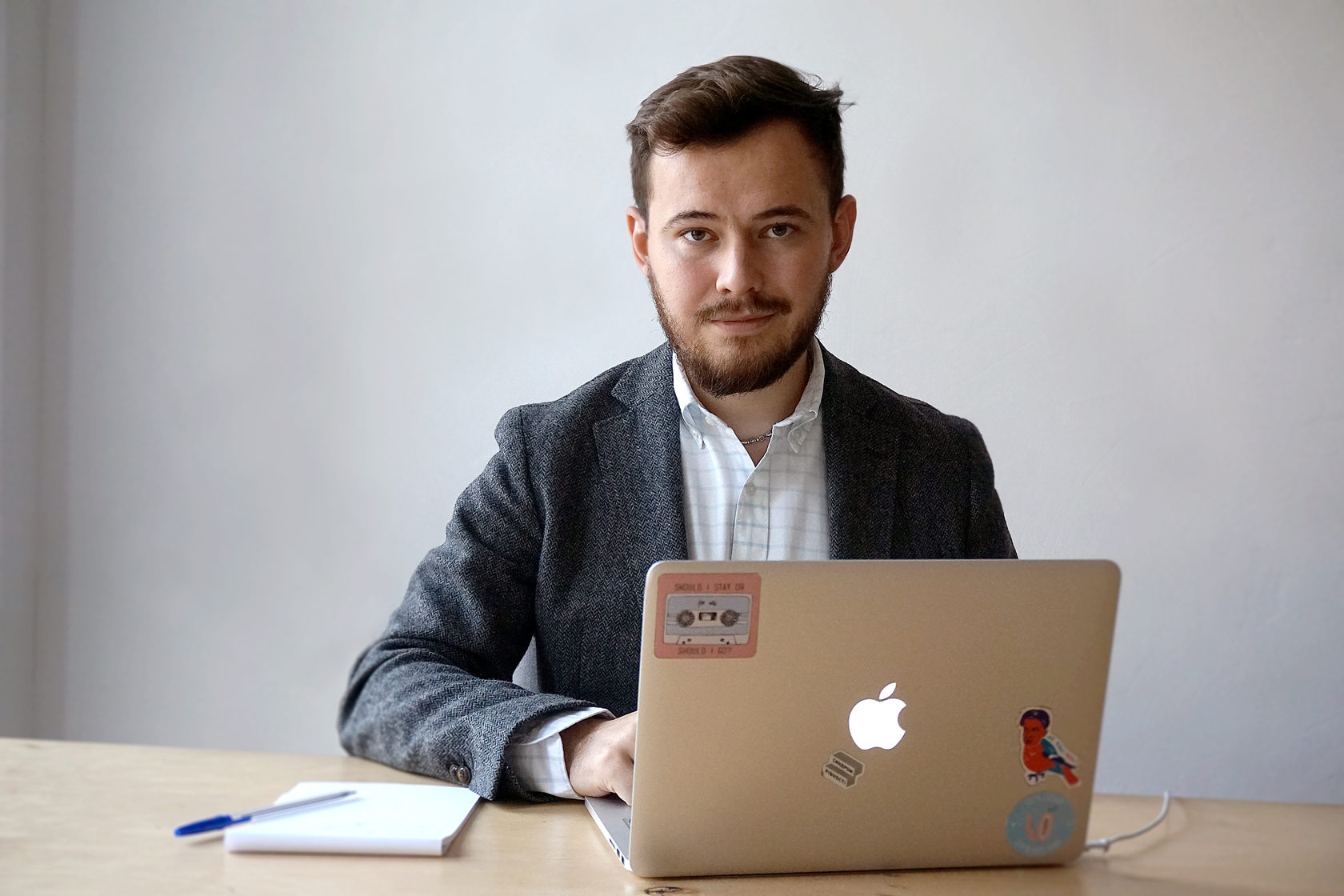
— In ideological terms, can Putin’s actions be called visionary?
— Of course, Putin behaves like a visionary. In addition to the story about the hybrid war, Putin’s media broadcast alternative dialogues to the whole world. On the one hand, he says that LGBT people and Soros need to be persecuted. On the other hand, it suggests that tough national leaders, certain fathers of nations, can build authoritarian states in Africa and Asia. He clearly formulated the philosophy that dictators have a right to exist in the modern world.
It should be noted that a huge number of societies in developing countries say that, for example, in France there are snickering colonialists who are trying to teach them. It’s sad that even with all its desire, the European Union cannot fight this because it does not speak the same systemic language as Putin.
Putin has clearly formulated the philosophy that dictators have a right to exist in the modern world.
— What can Ukraine oppose to Putin in this regard?
— The history of colonialism is very important for Ukraine. The fact is that Ukraine itself was a colonial country that never captured anyone or taught life. In this context, you have enormous potential. First, we need to tell the whole world that “we, Ukrainians, went through the war, defended our independence, at the same time we respect human rights and are working on the development of a democratic society.”
Many people believe in this, but so far there are no major drivers in the country who can move this idea forward. I’m sure there are people in the Office of the President who support this, but there are enough internal problems on the agenda right now. Due to the active carnage in domestic politics, Ukraine, unfortunately, is losing many potential paths for its development.
Due to the active carnage in domestic politics, Ukraine, unfortunately, is losing many potential paths for its development.
Reintegration
— Do you support the intensification of Zelensky’s communications, including within the framework of the Minsk agreements?
— You have a window of opportunity when you can have support, but it is already closing. The Ukrainian conflict has been a topic for a large number of international institutions for quite a long time, but this cannot continue forever.
For some time, Ukraine was the center of the world and, thanks to Comrade Trump, remains so now, but after the American elections the interest will end.
Therefore, those who say that “nothing can be done in this direction” do not understand that with such a position there will be no support.
The Ukrainian conflict has been a topic for a large number of international institutions for quite a long time, but this cannot continue forever.
— Share your thoughts about the reintegration of Donbass?
— Ukraine’s main interest is to make cities that are located next to the occupied territories centers of gravity. For example, installing environmental filters at factories in Kherson and Mariupol, as well as building new technology parks. Such initiatives will make these cities not only pleasant for local residents, but will also serve as a driver for changing the political situation in the occupied territories.
Of course, we can say that there are many international missions in Mariupol. However, it must be understood that an international humanitarian aid agency is not the solution to the problem. There is no need to rely on institutions that will do everything instead of the state. It is better to ask yourself a frank question: perhaps these humanitarian missions came to the region because there is a lack of government participation there?
There is no need to rely on institutions that will do everything instead of the state. It is better to ask yourself a frank question: perhaps these humanitarian missions came to the region because there is a lack of government participation there?
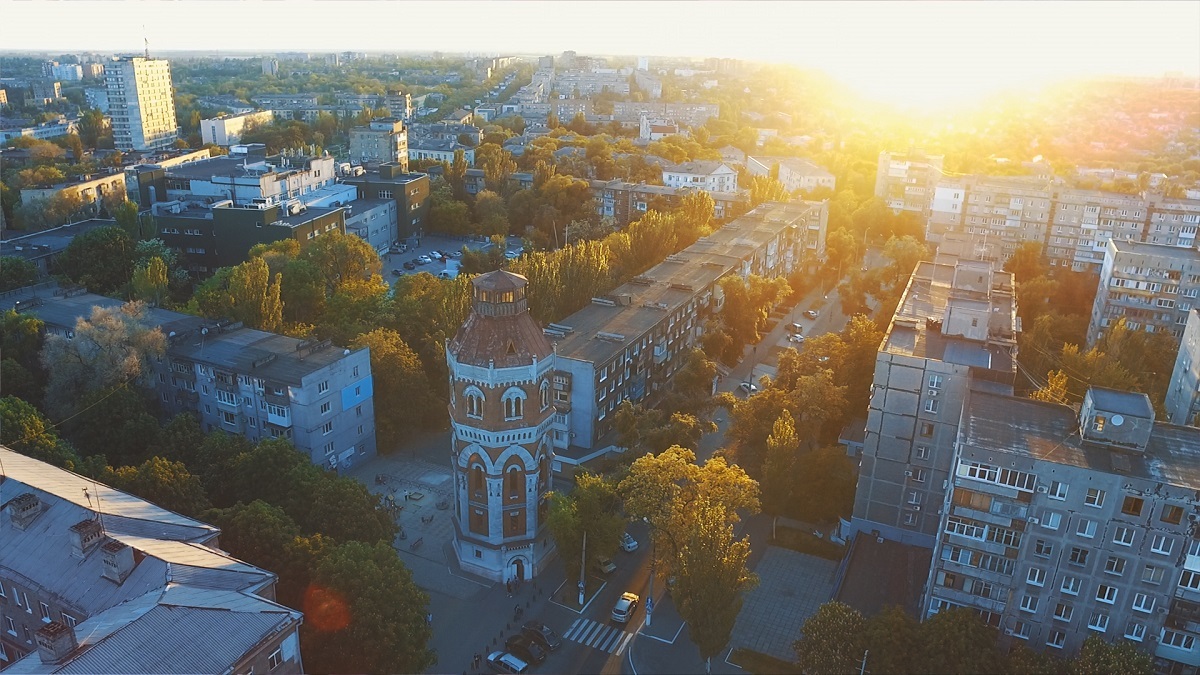
— Are there problems with communication in the West?
— When Ukrainian opinion leaders go to international platforms, for six years now the main thesis regarding the occupation of Ukraine is: “We must become a developed country with the rule of law, judicial reform, and show everyone what a democratic country we have.”
The problem is that the same opinion leaders then return to Ukraine and say the opposite things, that “people in the occupied territories are traitors to their homeland, why bring them back somewhere.”
— What action plan does Ukraine need to prosper?
— The West does not need Ukraine as a knight defending the borders of Europe. Most major European thinkers see Ukraine as a country that can ideologically compete with Russia.
I’m talking about Ukraine, which can show how a post-Soviet country with problems like the rest of the region, sharing much of the common culture with Russia, can stand for Europe, honor human rights and provide the opportunity to freely open a business.
I am sure that the project “Ukraine – the birthplace of freedom” would receive a lot of investment. To do this, you just need to respect the rule of law and open the market. These are conditions that will help small businesses develop dynamically, and even more so will seem positive to Western partners.
In addition to following the rules, Ukraine must be ready to transmit the values of freedom to Russia, Belarus, Kazakhstan and other authoritarian parts of the post-Soviet space. Then, including in Russia, they will wake up and see that with the same problems – the post-Soviet Soviet Union and corruption – you have succeeded.
Most major European thinkers see Ukraine as a country that can ideologically compete with Russia.
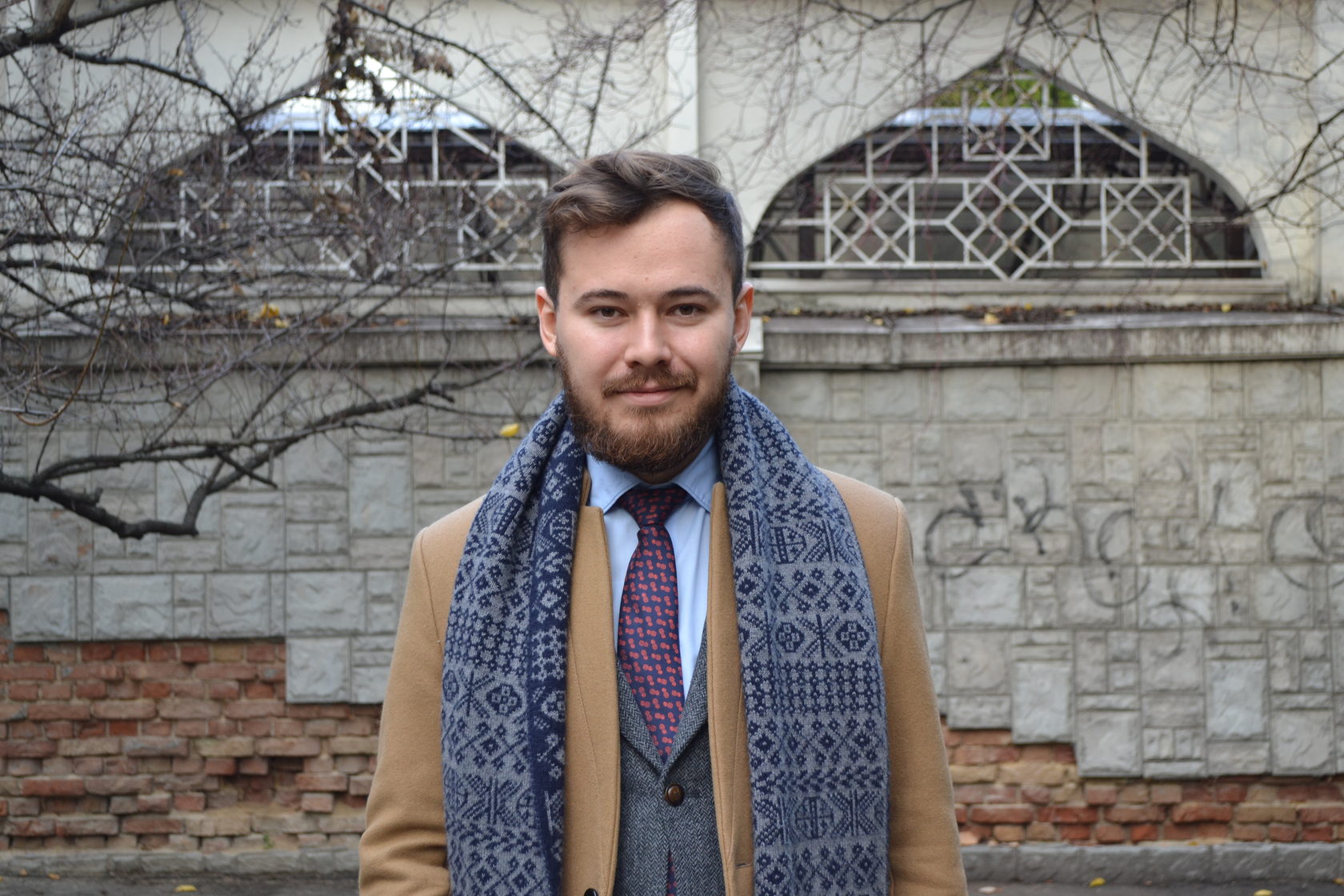
The Zelensky phenomenon
— Poroshenko’s supporters believe that foreign policy under him was definitely better than under Zelensky. What do you think about this?
— Pyotr Alekseevich will definitely go down in the history of Ukraine as a person who did not surrender the country. He could make Ukraine a truly European country with an economy, reforms, and an open land market. Alas, this did not happen.
If we talk about Poroshenko’s international position on security issues, it was extremely conservative. Many people think his position is correct, because security and conservatism are very compatible things.
Poroshenko will go down in the history of Ukraine as a person who did not surrender the country.
— If we imagine the continuation of Poroshenko’s rhetoric?
— You need to understand that the West does not want the continuation of the military campaign in eastern Ukraine, even if such a course of events led to the liberation of territories. Nobody in the EU wants war and eternal problems. After all, the European Union has its own internal affairs.
In 2015, everyone was happy about the signing of Minsk, because thanks to these agreements, the hot phase of the conflict was stopped. At the same time, I take into account the unfavorable conditions for the Ukrainian side.
After signing the agreements, Poroshenko spoke a lot of the right words and pushed for new financial and military assistance. In the context of Poroshenko, we are talking about the fact that he pursued a high-quality conservative agenda. However, Poroshenko’s agenda did not in any way solve the problem of Donbass, which must be resolved sooner or later.
The West does not want the continuation of the military campaign in eastern Ukraine, even if such a course of events led to the liberation of territories.
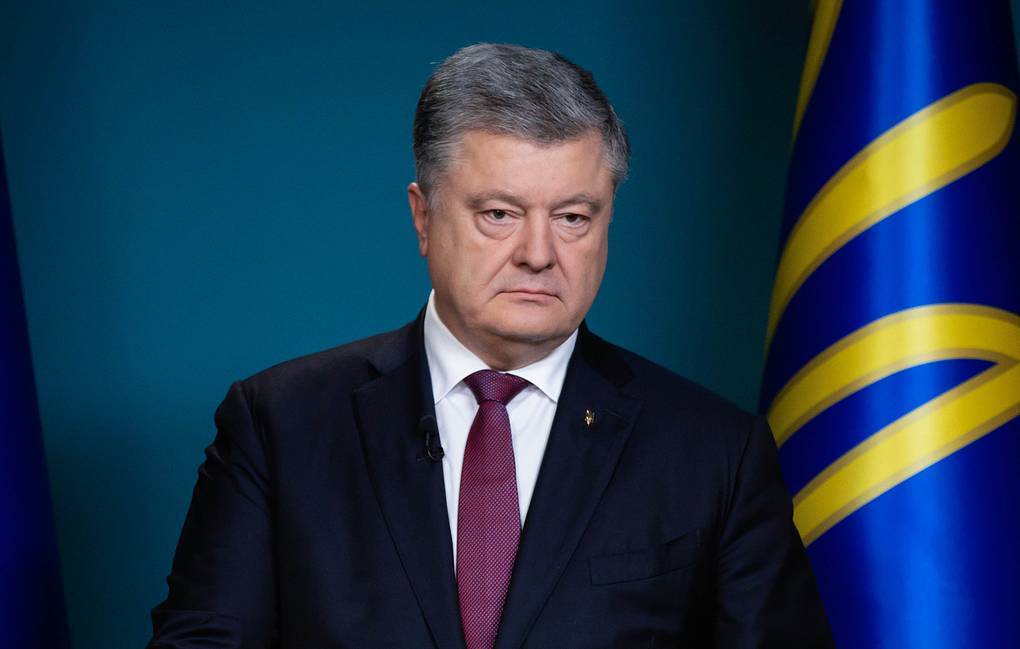
— What unique can be identified now in Zelensky’s policy that Poroshenko did not have?
— The story of the latest presidential elections in Ukraine is very indicative: Zelensky was chosen by the broad mass of the people, contrary to the position of the urban class. Personally, it was unpleasant for me to watch how Poroshenko’s presidential campaign was built solely on hatred and aggression, and not on merit, of which there were many.
Poroshenko has always spoken exclusively about military power, and Zelensky is a person who can use soft power. For example, the debates at the stadium were broadcast by all kinds of Ukrainian and international media, and the views were enormous. This was a real case for the entire post-Soviet space. Based on this, we can conclude that Zelensky has enormous potential for communicating with the people in Donbass, Crimea, Russia, Kazakhstan, and Belarus. Zelensky’s soft power is his great advantage.
Another case. After Zelensky’s inauguration, I just visited Tbilisi. What is noteworthy: all 25 taxi drivers with whom I was traveling knew Zelensky’s inaugural speech by heart. This is despite the fact that Georgia is clearly not a Russian-speaking country. It is clear that Georgia and Ukraine have very warm relations, but this is an unprecedented story. “Take a portrait of the president and hang photographs of your children on the walls,” everyone heard and knew. This was the most leaked thesis in the politics of the post-Soviet space.
Zelensky’s soft power is his great advantage.
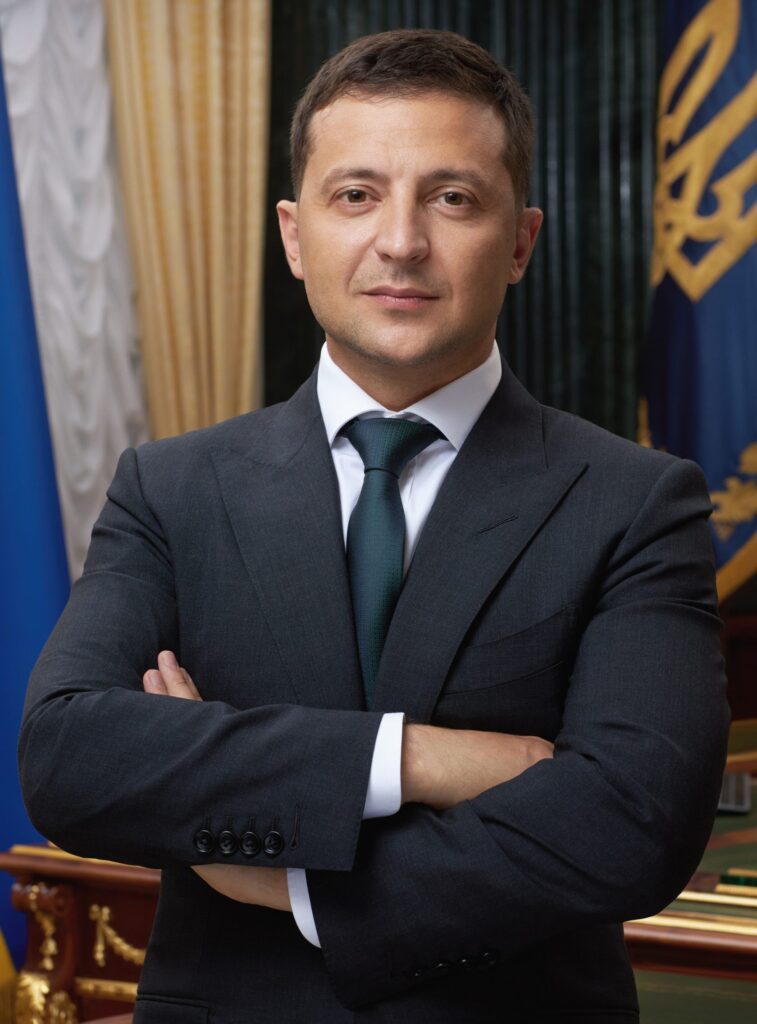
— What do you now expect from Zelensky in terms of communication?
— What I most expect from the Office of the President is the launch of a sustainable international TV channel. I don’t mean a Ukrainian news channel that will talk about how “evil invaders in Crimea are eating our children.” An international Russian-language channel is needed to exercise influence and provide independent news content that people will watch instead of biased channels.
— What is your position on the current Office of the President?
— In the West it is now difficult to perceive Zelensky and his Administration. Everyone there is informed that pro-Russian forces have come to power, not even politicians, but showmen, who are also Kolomoisky’s people. As for me, the previous Ukrainian government did not have to do this at all.
On the other hand, Zelensky’s Office is now more than ever ready for quick decisions. However, this circumstance is both a plus and a minus. It must be taken into account that quick political decisions must be strung together with a long-term strategy, which I do not see yet.
Now the efforts of the Office of the President look like an attempt to do everything in a hurry, believing that everything will work out. Zelensky’s team needs to build a high-quality political line as quickly as possible. We see that Zelensky has chosen active actions, and I think this is right. It must be borne in mind that the West is tired of the fact that Ukraine cannot do anything on its own until it gets help.
Quick political decisions must be linked to a long-term strategy.
Europe
— Do you consider Nord Stream a profitable deal for Germany?
— You need to understand that Nord Stream (hereinafter referred to as the joint venture – ed.) will make Germany a key energy hub of the European Union. Germany will be very happy with the additional influence on the European region, and it will also earn transit money from it. The issue here is not only in Ukraine, but in the fact that the Druzhba pipe feeds half of the countries of Eastern Europe.
The gas pipeline will be built by the same companies, under the financial guarantees of Gazprom; accordingly, we will receive additional agents of Gazprom’s influence in other countries of Eastern Europe. The perfect plan. It is clear that the joint venture is being built to close the Ukrainian pipeline. If SP-2 starts up now, this will lead to the closure of Druzhba, which means it will be necessary to build a new gas supply system and new pipes.
Nord Stream will make Germany a key energy hub of the European Union.
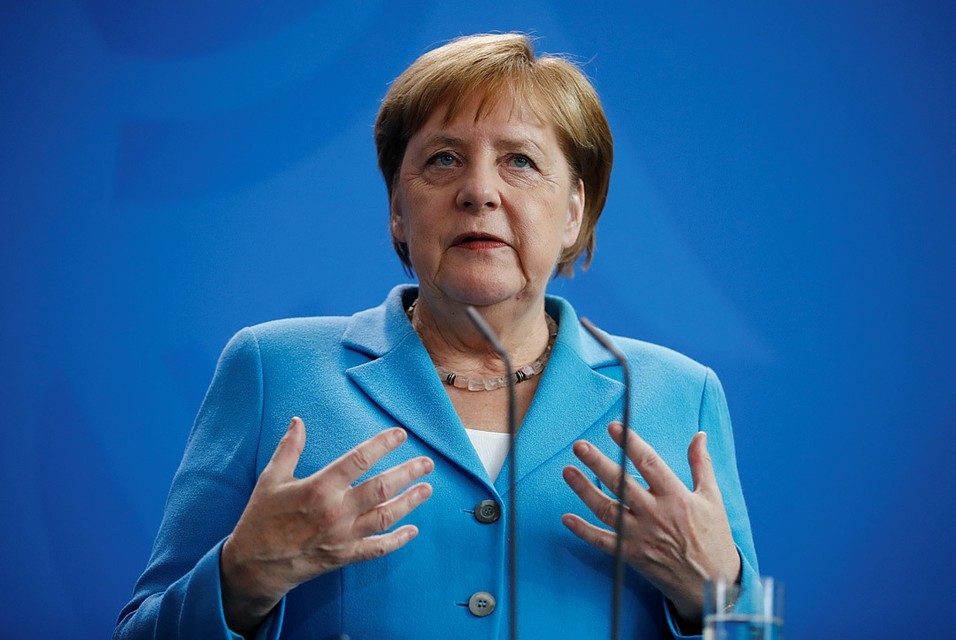
— Is it possible that Germany will change its decision?
— Now this is a sensitive topic in German politics. Everyone understands that this is very bad, but, on the other hand, it entails a lot of money and influence. In terms of decision-making, Germany is a slow and pragmatic country, but at the same time, German businesses that want to influence it have many lobbyists. It is very difficult for me to imagine that Germany will change its decision on the joint venture; it is easier to imagine that the European Union will put pressure on it.
— What, in your opinion, is the reason for Macron’s obvious sympathy for Putin?
— In addition to the very basic thesis that France is quite a Russophile country, we need to take into account the fact of Macron’s competition with Marine Le Pen. In other words, while showing sympathy for Russia, Macron does not want to give Le Pen all the left-wing electoral sympathies.
— How do you think Macron sees the role of modern France?
— Many smart people write that after Brexit there will be an attempt to reform the European Union into a Europe of two leaders: economic in the role of Germany and ideological in the role of France. However, I am not sure that Macron has enough support in the EU to become such a visionary.
Today Macron is trying to launch a project for a common European army and to unite the EU more closely, as is more beneficial to him. Accordingly, the new French position on the enlargement of the European Union and the temporary veto on the entry of new members (the example of Macedonia) are associated with the fact that the leadership within the EU, as well as France, may fall back on the old rails, which is not beneficial for Macron.
After Brexit, there will be an attempt to reform the European Union into a Europe of two leaders: economic in the role of Germany and ideological in the role of France.
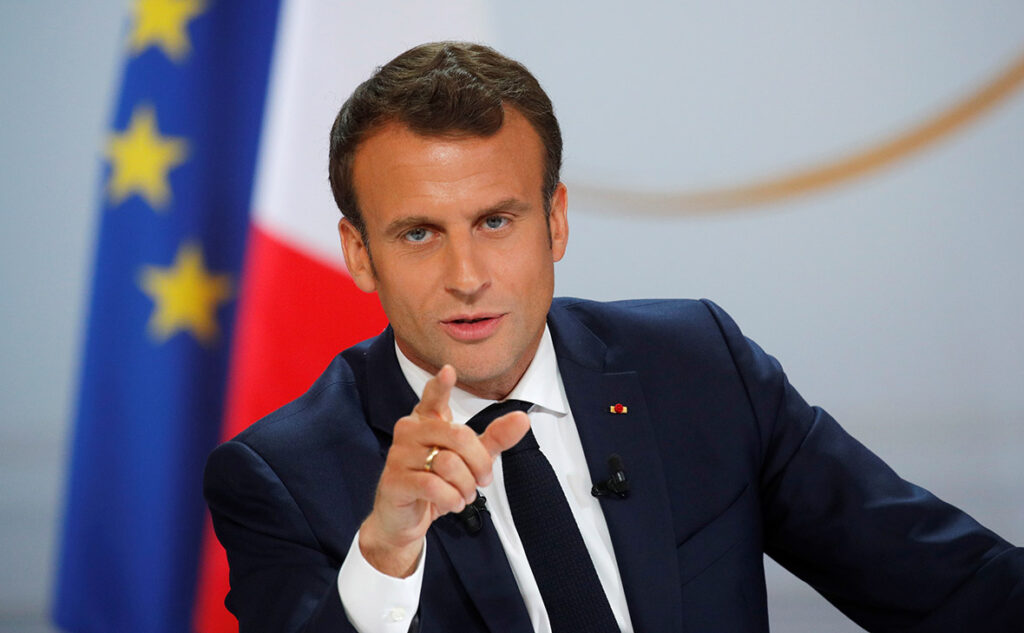
— How would you comment on Macron’s statement about Europe from Lisbon to Vladivostok?
— I like the statement about Europe from Lisbon to Vladivostok. It can carry many useful meanings for everyone. This is not a story that Russia will soon become democratic, but rather the fact that if Europe signs up to deals like SP2, then the EU’s area of responsibility expands from Lisbon to Vladivostok. Including for the action of the Kremlin regime, which will pay for part of European expenses.
— In your opinion, is the return of the Russian delegation to PACE a mistake or an opportunity for better communication?
— From the point of view of foreign policy, Ukrainian society perceives PACE as an exclusive platform for solving their problems. While most Russians view it as a place where Russian problems should be considered. We all need to learn to live with the understanding that PACE is a place where common problems are solved. Still, international institutions do not concern exclusively Ukraine or Russia.
We all need to learn to live with the understanding that PACE is a place where common problems are solved. Still, international institutions do not concern exclusively Ukraine or Russia.
— What kind of Russia do they want to see in Europe?
— Everyone wants Russia to become a democratic country, and it is possible to do business with it.” Nobody wants Russia to collapse into a billion pieces, with evil separatists running around its territory with nuclear weapons in their hands, or 50 million refugees in Eastern European countries..
— How is it advisable for Ukraine to build relations with the United States and the European Union?
— In the eyes of the world, Ukraine must cease to be a country that constantly needs help. I think if Ukraine began to articulate the development of the south and territories along the occupied line, the creation of innovation centers there and the general development of the territory, it would be easy to find resources for this from major international donors. This would be a story that would show the world that Ukrainians want to take care of their country and develop their territories in such a way that people living in the East can see the difference.
You need to develop the concept that the EU welcomes stable countries with which to have constructive business relationships. It is necessary to understand that the European Union needs a stable Ukraine, and not a constantly warring protector country.
In the eyes of the world, Ukraine must cease to be a country that needs help.
Expert environment
— You mentioned that Western experts on Russia are often not very experienced. Why did this situation arise?
— In the States, since the collapse of the USSR, most centers have transferred their resources towards studying China and the Middle East. Until a certain point, there were many excellent analysts in America who said: “We don’t deal with Russia because it’s not a threat to us, it’s only 2% of world GDP, and the USA is 40%.”
They forgot about Russia, so most of the experts in the United States on the situation in Crimea were either ancient criminologists and spoke as they did under Brezhnev, or very young guys who spent some time in Russia or in the Peace Corps and decided to build a career in the West. In most cases, these people are not entirely experienced and understanding.
— What fact did Western experts overlook?
— We need to keep in mind the fact that the Kremlin is a regime that can focus its resources very strongly and thus influence any major economy or regional plot. Unlike Congress, the Duma will not have to hold discussions for two months on the topic “whether they will approve the spending of money or not.” I’m not even saying that there is no reference to morality, universal values and human rights.
The Kremlin is a regime that can focus its resources very strongly and thus influence any major economy or regional plot.
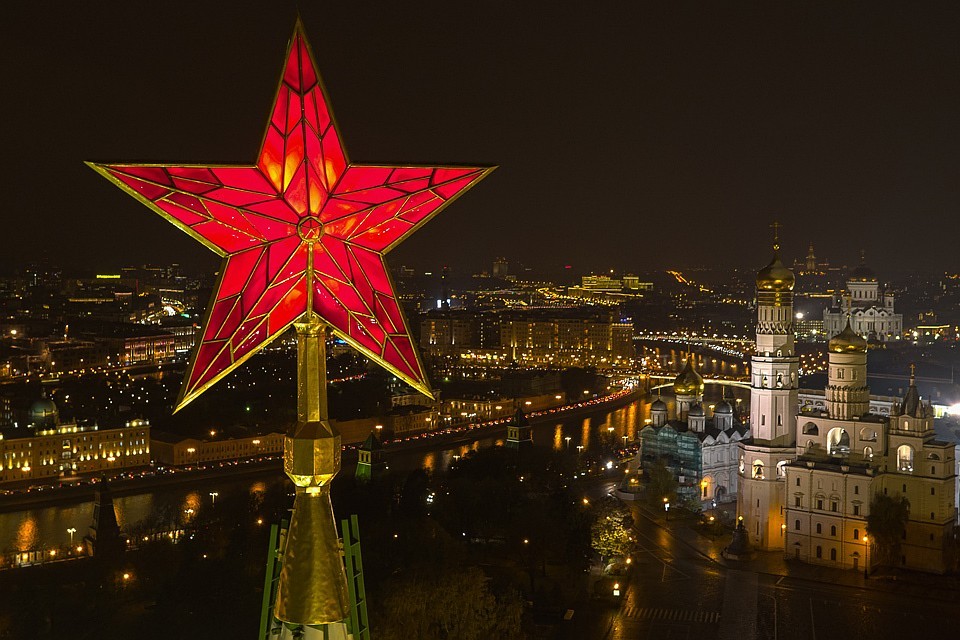
— Why do you think some research institutions, for example, the Kennan Institute or the Carnegie Center, sympathize with Russia?
— It so happens that specialized areas of research are often funded by their representatives. The Kennan Institute and the Carnegie Center were no exception. There are other examples, for example, in Oxford the School of Government is named after the Russian oligarch Leonid Blavatnik. At New York University, the Center for Russian Studies is named after Jordan, the man who once raided the NTV channel.
Such things happen, especially considering that until 2014, no one anywhere cared about Russia’s influence. Although even now no one notices him either. The story of Nord Stream in Europe is a striking case. Of course, we know that Russia is waging a hybrid war, we go to commemorative events, but Nord Stream is about something else, it’s Gazprom, not Russia.
Activities
— Tell us more about the history of the creation of the park named after Boris Nemtsov?
— I am very proud of this story. Until we took up this project, the initiative hung around for three years, no one wanted to take it on, and the city administration considered it politically dangerous. However, we took it on and we succeeded.
Kiev life is wonderful because if you really want to change something and also make every effort, then you will definitely succeed. Kyiv is a city of opportunities, where in order to achieve something, you just need to work hard and do it.
The story of Nemtsov’s park is not about Russia, but rather about the townspeople who thought it was right for Nemtsov’s park to be in Kyiv.
Kiev life is wonderful because if you really want to change something and also make every effort, then you will definitely succeed.
— Did you rely on the Facebook community or on your circle of offline acquaintances?
— “House of Free Russia” is an organization that is based on a specific community.
However, it was initially clear to us that with such a conflicting name, it would be difficult for us in Ukraine to become the leader of Facebook. Because political Facebook is a synthetic, dirty, polluted community where people who spread hatred are often the main beneficiaries of the discussion.
We initially did not want to make some kind of high-profile public story out of the campaign for the appearance of the park, realizing that a high-profile story could sully the name of Boris Nemtsov. Based on this, we decided that it would be much more effective if our offline community, including activists, journalists, students and youth organizations, helped us implement the renaming initiative.
Ultimately, many people told us that we were doing the right thing.
These are people who understand that we are doing good. I would like to say a special thank you to Sergei Gusovsky and Svetlana Zalischuk: without their support we would have had a much more difficult time.
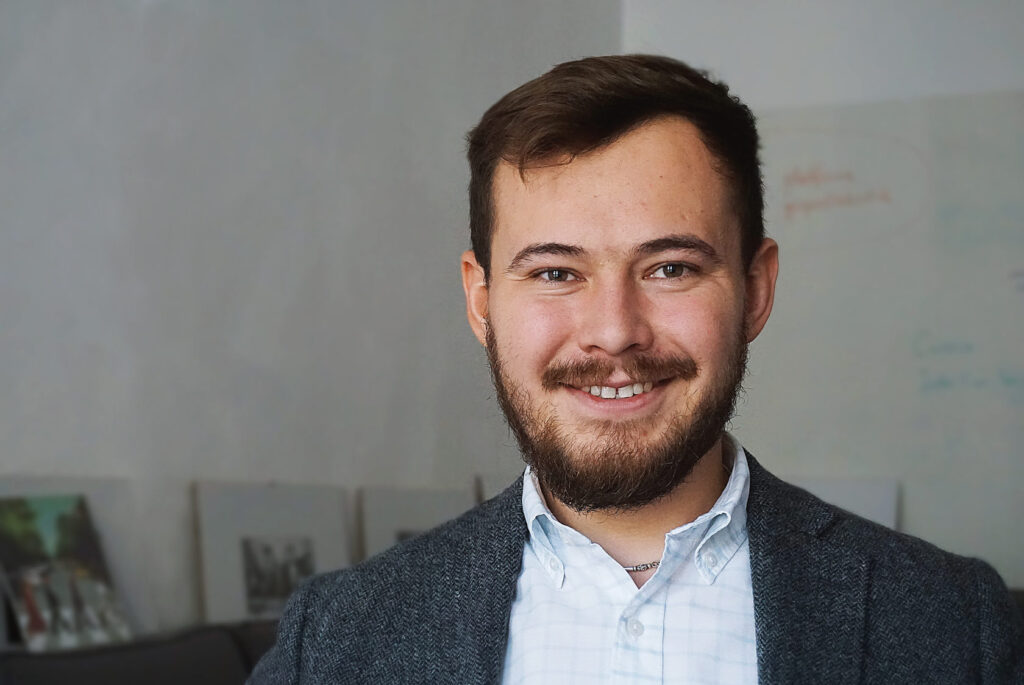
People who spread hate are often the main beneficiaries of the discussion.
— Tell me, how many similar renamings have already taken place, and are there any similar initiatives at the moment?
— At the moment, renaming has been successful in four cases, namely in Kyiv, Washington, Vilnius, Riga. At the same time, today there are three initiatives in Europe – Warsaw, Paris, London.
Such an action is quite difficult to implement. Even in Washington, the level of opposition to the campaign from the Russian embassy was enormous.
Meanwhile, the presence in the city of a street named after Nemtsov is a very important issue for the Kremlin.
The presence in the city of a street named after Nemtsov is a very important issue for the Kremlin.
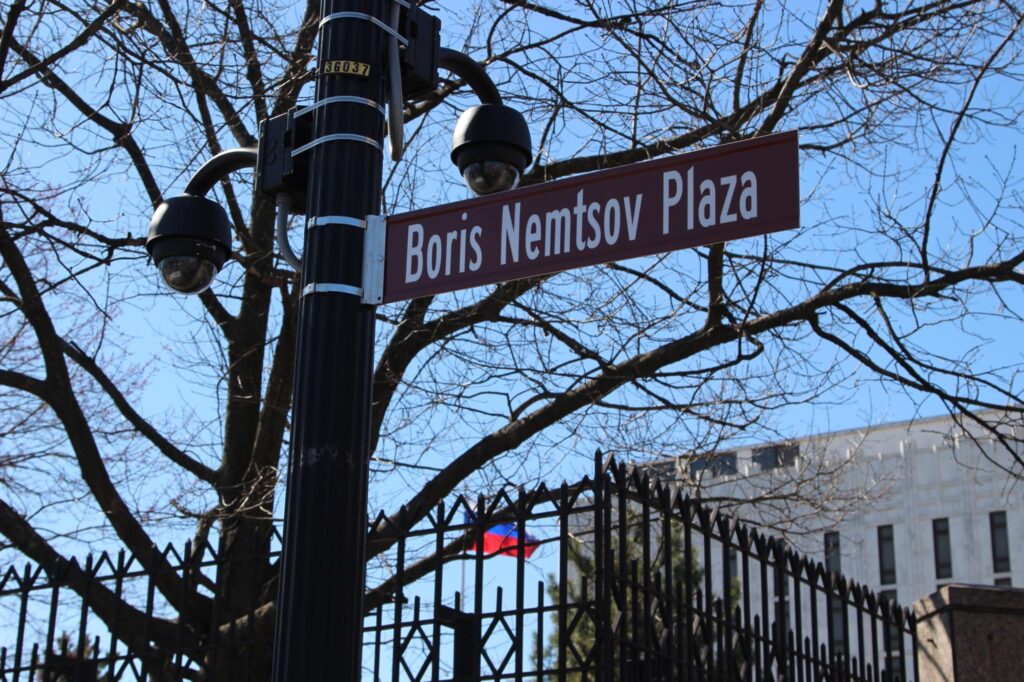
Worked on the material
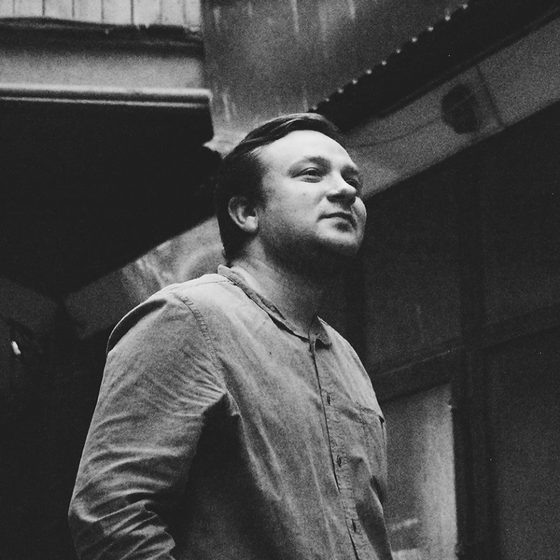
Yaroslav Karpenko
Editor in Chief

Yana Sychova
Editor

Anastasia Yakovenko
Transcriber

